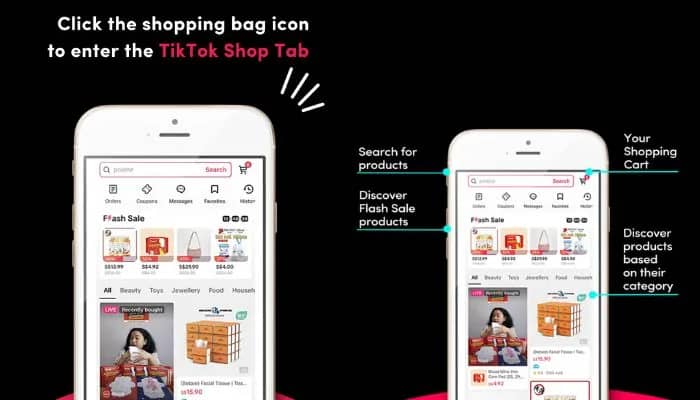In the dynamic realm of marketing, embracing innovation and leveraging technology isn’t just a strategy—it’s a mindset that defines the path to success. By embracing change and staying open to new ideas, marketers unlock endless possibilities to engage, inspire, and delight their audiences.
For MARKETECH APAC’s latest Milestone Series, we spoke with Maggie Effendy, associate marketing director – head of marketing for baby and child care (BCC) at Kimberly-Clark Softex Indonesia, to discuss one of her greatest milestones — blending her expertise and decades of experience to push the boundaries of technology and innovation in enhancing the consumer experience.
In this feature, Effendy delves into her illustrious marketing career spanning two decades, her first anniversary with Kimberly-Clark Softex, and her remarkable journey of relentless innovation with new technology.
A merger of talent and opportunity
In 2020, Kimberly-Clark completed its acquisition of Softex Indonesia, a huge move that drew Effendy to join the company two years later. Attracted by the acquisition–an area missing from her career experience–Effendy saw this as an opportunity to leverage her hybrid expertise from both big local family-run companies and multinational corporations to contribute significantly to the success of Kimberly-Clark Softex.
A year after joining Kimberly-Clark Softex, Effendy had played a pivotal role in leading and contributing to some of the company’s most successful campaigns. Her tenure at Kimberly-Clark Softex has been distinguished by groundbreaking initiatives, including the recent and particularly proud launch of the ‘Sweety Dry Xpert X-Zone’ product.
As the head of marketing for Sweety, Effendy and her team have relaunched Sweety Dry X-Pert with new X-Zone Technology, featuring an X-shaped channelling system exclusive to Kimberly-Clark globally. This innovation allows the diaper to absorb liquid five times faster, keeping the baby comfortable and dry for up to 12 hours, reducing the risk of diaper rash, and promoting healthy skin.
And to top this all off, an extra special innovative feature made it into the creative process behind the product launch. Effendy and her team have integrated AI technology to generate personalised baby images on the packaging. This unique approach allows them to depict a baby that grows with Sweety from newborn to XXL sizes, something traditional photo shoots or image banks couldn’t achieve.
“I believe we are the first in Kimberly-Clark globally to utilise AI technology for baby image on pack, and we would not be here today without the support from management that values leveraging technology. Our network of stakeholders also helped us to ensure we took all the necessary precautions in this new territory of marketing,” Effendy shared.
Pushing boundaries and leading with innovation
The idea of using AI for the baby image project emerged from the challenge of meeting a tight timeline. With the help of AI technology, Effendy and her team not only significantly reduced the production timeline but also saved considerable costs per image compared to traditional photoshoots.
Effendy believes that the integration of AI in their packaging not only fosters a stronger connection with shoppers but also demonstrates how technology can enhance the consumer experience.
For Effendy, a successful product launch should aim to exceed customer expectations, even addressing needs that were previously unvoiced or unknown. This is where innovative technology can push boundaries.
Effendy’s innovative way of answering challenges and providing effective solutions is honed through his decades of experience in the industry. Prior to joining Kimberly-Clark Softex, she was an FMCG international marketing professional working for global QSR companies.
In one of her previous roles as marketing manager at an international fast-food chain, Effendy’s goal was to drive mainstream traffic to the store. Instead of just creating a better burger, she identified a barrier for group dining: the lack of options for non-burger eaters.
By introducing chicken and rice to the menu, they were able to break this barrier that hinders the business’ growth. Consequently, the company became the first globally approved fresh chicken menu and operations standard.
Charting the course of the future
AI has played a pivotal role in Effendy’s recent product launch with Kimberly-Clark Softex, and looking ahead, she foresees AI continuing to disrupt the marketing industry, particularly in product innovation and development.
The potential for AI to transform marketing practices excites her, especially in the realms of design, communication, and social media. She, especially, anticipates AI advancements in shopper CRM.
“I believe AI innovation will help accelerate the growth of smaller niche brands’ products and services, therefore closing the gap in current scale barriers between big mainstream brands and carefully curated ones,” she explained.
When asked what she foresees shaping the future of marketing in the SEA region, Effendy sees Indonesia playing a pivotal role in shaping future marketing trends, given its vast population and burgeoning consumer market. And with Kimberly-Clark Softex’s global network and local agility, she is also confident in the company’s ability to capitalise on emerging trends in the personal care sector.
Effendy shared, “I believe Kimberly-Clark Softex is well positioned with both the power of global networks as well as the agility of local movers to capitalise on future trends in personal care in Indonesia.”
Reflecting on a distinguished career
Over her 20-year career in marketing, Effendy has had numerous achievements, from successful product launches to impactful team development. Reflecting on her past works and achievements, she finds it hard to pick which is the most memorable, as there are too many of them.
From her Mie Sedaap project to Oreo Blackpink and now her work with Kimberly-Clark Softex, each of Effendy’s works occupies a special place in her heart. However, she believes her greatest achievement is best measured not only by commercial success but also by the growth and development of the team during the project.
“There’s nothing more satisfying for me than seeing a talent grow to their full potential,” she simply said.
Effendy’s journey exemplifies the spirit of innovation, resilience, and leadership in the marketing industry. Her ability to navigate challenges, embrace technology, and inspire others underscores her role as a visionary marketer.
“After 20 years in marketing, I’m amazed by how much there is still to learn and even in awe of the great leaders and mentors that are always willing to share knowledge out there. I can only aspire to ‘pay it forward’ and continuously partake in building the next wave of inclusive leaders,” she concluded.










